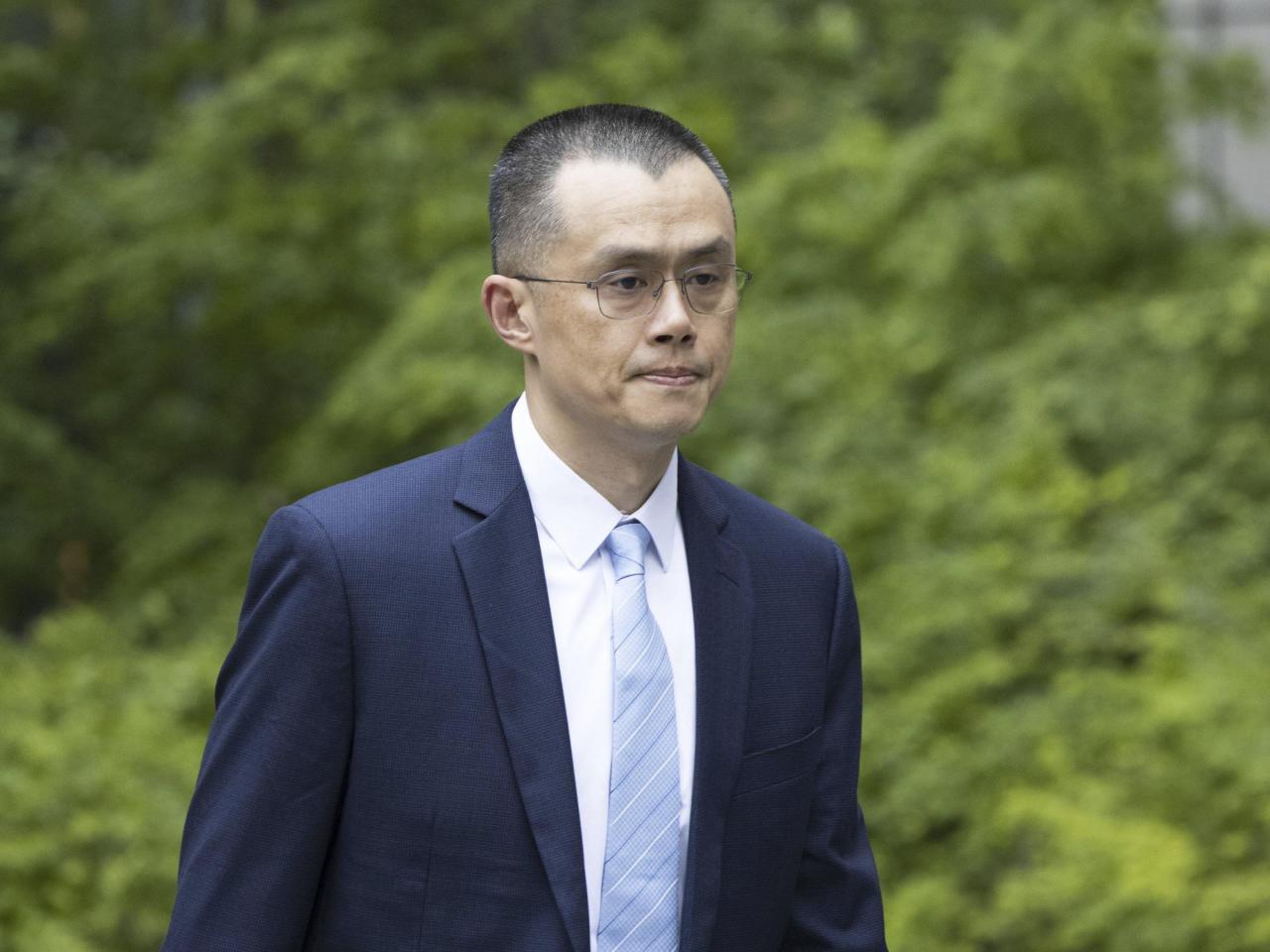Binance founder Changpeng Zhao sentenced to 4 months for allowing money laundering
SEATTLE (AP) — Binance founder Changpeng Zhao was sentenced Tuesday to four months in prison for allowing rampant money laundering on the world’s largest cryptocurrency exchange.
A judge credited Zhao for taking responsibility for his wrongdoing but said he was troubled by the now-former CEO’s decision to ignore U.S. banking requirements that would have slowed the company’s explosive growth. The sentence was far less than the three years prosecutors had sought, but defense attorneys had asked that Zhao spend no time in prison.
“Despite wealth, power or status, no person — regardless of wealth — is immune from prosecution or above the laws of the United States,” U.S. District Judge Richard A. Jones told Zhao.
Zhao pleaded guilty in November to one count of failing to maintain an anti-money-laundering program and stepped down as Binance agreed to pay $4.3 billion to settle related allegations. U.S. officials said Zhao deliberately looked the other way as people conducted transactions that supported child sex abuse, the illegal drug trade and terrorism.
“I failed here,” Zhao told the court Tuesday. “I deeply regret my failure, and I am sorry.”
No one has ever been sentenced to prison time for similar violations of the Bank Secrecy Act, defense attorneys Mark Bartlett and William Burck told the judge. But prosecutors argued that if Zhao did not receive time in custody for the offense, no one would, rendering the law toothless.
Binance allowed more than 1.5 million virtual currency trades, totaling nearly $900 million, that violated U.S. sanctions, including ones involving Hamas’ al-Qassam Brigades, al-Qaeda and Iran.
Bartlett and Burck said there was no evidence Zhao personally knew of any specific transaction that would have been barred by U.S. regulations or sanctions. Also, they argued, the number of suspicious transactions Binance handled was a miniscule proportion for a company whose total transactions were about $500 million a day. And they noted that Zhao began making changes to make Binance a model of compliance with banking transparency regulations before stepping down.
In a letter to the court, Zhao wrote that there was “no excuse for my failure to establish the necessary compliance controls at Binance.”
“I wish I could change that part of Binance’s story. But under my direction, Binance has now implemented the most stringent anti-money laundering controls of any non-U.S. exchange, and those controls have been in place since 2022,” he added.
Prosecutors said no one had ever violated the Bank Secrecy Act to the extent Zhao did.
“He says in hindsight he should have done a better job,” Justice Department lawyer Kevin Mosley told Jones. “This wasn’t a mistake. When Mr. Zhao violated the BSA he was well aware of the requirements.”
Zhao knew that Binance was required to institute anti-money-laundering protocols, but instead directed the company to disguise customers’ locations in the U.S. in an effort to avoid complying with U.S. law, prosecutors said.
Zhao, his legal team and family members left after Tuesday’s hearing without speaking to reporters.
The cryptocurrency industry has been marred by scandals and market meltdowns. Most recently. Nigeria has sought to try Binance and two of its executives on money laundering and tax evasion charges.
Zhao was perhaps best known as the chief rival to Sam Bankman-Fried, the founder of the FTX, which was the second-largest crypto exchange before it collapsed in 2022. Bankman-Fried was convicted last November of fraud for stealing at least $10 billion from customers and investors and sentenced to 25 years in prison.
Zhao and Bankman-Fried were originally friendly competitors in the industry, with Binance investing in FTX when Bankman-Fried launched the exchange in 2019. However, the relationship between the two deteriorated, culminating in Zhao announcing he was selling all of his cryptocurrency investments in FTX in early November 2022. FTX filed for bankruptcy a week later.
Zhao’s attorneys pointed to his willingness to come from the United Arab Emirates, where he and his family live, to the U.S. to plead guilty, despite the UAE’s lack of an extradition treaty with the U.S.
They also argued that he would not be safe in prison. Because he is not a U.S. citizen, he is ineligible for placement in a minimum security facility. Given his high-profile status and wealth, as well as Binance’s cooperation with U.S. law enforcement in certain investigations, he might be a target for violence in a medium security prison, they suggested.
The judge said he took that into account in sentencing Zhao to four months, instead of the five-month sentence recommended by U.S. Probation and Pretrial Services.
Source: wral.com
